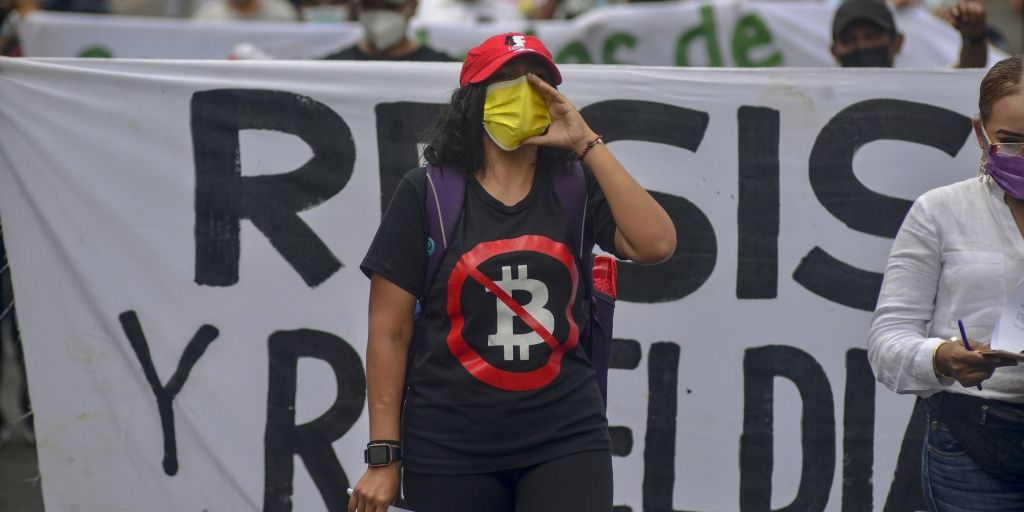On Wednesday, police in El Salvador arrested a cryptocurrency and computer specialist who had previously criticized the government’s new Bitcoin law. Mario Gómez was taken away in handcuffs while driving in a car with his mother and was released later in the day, according to local reports.
El Salvador police said on Twitter that Gómez was being investigated “for crimes of financial fraud.” But Gómez’s lawyer, Otto Flores, said that he was detained without an arrest warrant and his mobile phones were seized without a court order. “The strange thing is that the Prosecutor’s Office itself was unaware of this arrest, there was no arrest warrant,” Flores told local media.
Videos by VICE
After word of the arrest spread, a movement on social media calling for Gómez’s release spread under the hashtag #LiberenAMario.
In June, El Salvador made Bitcoin legal tender in the tiny Central American country—the idea of Nayib Bukele, the country’s incredibly popular, millennial president. The plan is that it will “bring financial inclusion, investment, tourism, innovation and economic development” to the country, according to Bukele. The government’s plan is that Salvadorans will receive $30 in Bitcoin if they sign up for the wallet. Salvadorans will be able to send and receive Bitcoin, as well as convert the world’s largest cryptocurrency to US dollars.
But the law has been criticized by the likes of the World Bank, who say it wouldn’t really work in practice in the dollarized nation, due to Bitcoin’s volatility. Others claim it could increase the risk of financial crime.
The day before his arrest, Gómez, the founder of San Salvador tech incubator Hackerspace, criticized the Chivo wallet, a state-sponsored Bitcoin wallet designed for the country’s citizens due to go live this month. Gómez, who has over 12,000 Twitter followers, criticized the progress of development and claimed that a Bitcoin address used on an apparent Chivo presentation uploaded to LinkedIn had previously been used to steal cryptocurrency.
People took to the San Salvador streets to protest the Bitcoin law on the day of Gómez’s arrest, according to local media. Protestors slammed the law and held banners saying it was a front for money laundering.
Gómez was later released and police said they would continue their investigation into Gómez, adding that he is linked to “false emails sent to many users of the banking system, where their account statements have been compromised.”
Bukele, who took office in 2019 by savvily using social media to target the country’s youth and promising to boot out corruption, holds high approval ratings in El Salvador, a poor and crime-ridden country, for improving the security situation. But he has been criticized for his authoritarian tendencies, attacks on the press, and having allegedly corrupt political pals.
More
From VICE
-

(Photo by Maddie Meyer/Getty Images) -

(BERTRAND GUAY/AFP via Getty Images) -

Kelly Sullivan/Getty Images

